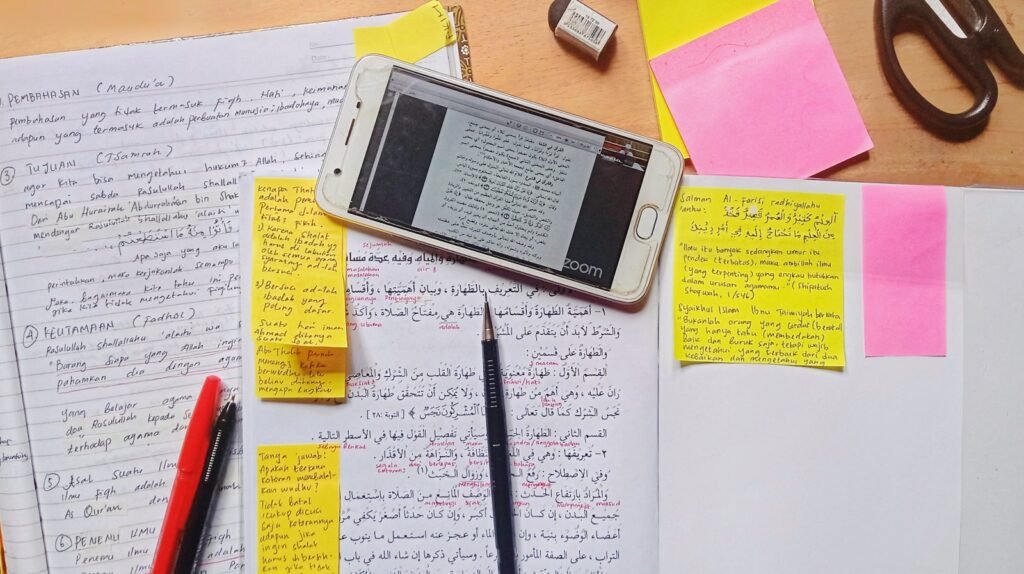
Tips to Beat Writer’s Block
Oh, the dreaded writer’s block – that formidable f of every hopeful wordsmith. Imagine this: you’re seated before a stark white page, your thoughts utterly vacant. The cursor blinks tauntingly at you, almost as if it’s challenging you to impress it. But fret not, my fellow writers, for I bring forth guidance to conquer this beast and unleash your imaginative brilliance upon the universe!
First and foremost, let us ponder the significance of setting the atmosphere. As proclaimed by the illustrious Ernest Hemingway, “I write early in the morning and then venture out by noon. It prevents me from grappling with the writing.” Thus, create your own writing haven – ignite some candles, play your beloved tunes or perhaps don an extravagant hat to stimulate those creative currents within. Keep in mind that inspiration can strike unexpectedly like a ninja capturing a fly mid-air.
Next up is shaking up your routine. Disrupt the monotony by experimenting with diverse writing prompts or exploring different styles and genres. In accordance with the sagacious Roald Dahl’s contemplation, “The more risks you take, the more you will learn.” So go ahead be audacious, be adventurous and above all else be yourself! Writer’s block doesn’t stand a chance when armed with an arsenal of creativity and a sprinkle of daring spirit!
Finding Inspiration Around You
Inspiration is a mysterious creature, much like a mischievous rabbit darting through the unknown. Its presence can strike at any moment, sending waves of creativity cascading through our minds. The world we inhabit is a labyrinth of potential muses, waiting to ignite the flames of our imagination.
Just recently, I found myself ensnared in a web of writer’s block, lost in a sea of uncertainty as my thoughts wandered aimlessly. Just when all hope seemed lost, a whimsical meme from a friend appeared out of nowhere, injecting life back into my weary soul and reigniting my passion for writing. It brought to mind the wise words of Maya Angelou: “You can’t exhaust creativity; the more you use it, the more it multiplies.” So next time you find yourself adrift in stagnation, open your eyes – inspiration may be lurking just around the corner!
Creating a Routine to Jumpstart Your Writing
The enigmatic routine, a mystical elixir that unleashes your writing prowess and banishes writer’s block to distant realms. Crafting a routine need not be as daunting as confronting the chaos of your cluttered closet. Begin by uncovering your prime productivity moments. Are you an early bird or a night owl? Embrace your innate circadian rhythm and allow the words to cascade like a raging river. As the illustrious Roald Dahl once mused, “The optimal time for plotting a tale is amidst scrubbing dishes.” Thus, who decrees that routine cannot encompass some contemplative dishwashing?
Moving forward, unearth your designated writing nook. It need not resemble a lavish authorial haven overlooking Central Park (though one wouldn’t decline such an offer). Whether it be the snug corner of a nearby cafe, the dew-kissed park bench at daybreak, or even your faithful desk adorned with half-empty coffee cups – set the stage, ignite the metaphorical writing candle, and witness enchantment unfold. Recall how Edgar Allan P sagely remarked, “I yearn to compose as cryptically as a feline.” Embrace your inner feline allure and let it shepherd you through your writing ritual.
Setting Realistic Goals for Yourself
When it comes to setting goals for yourself as a writer, the path can often seem shrouded in mystery and unpredictability. It’s like trying to navigate through a dense fog, not knowing what lies ahead. Sure, we all harbor grandiose fantasies of churning out a best-selling novel within mere weeks or magically transforming into the literary reincarnation of Shakespeare overnight. But let’s be honest with ourselves – greatness takes time to cultivate. Rome wasn’t constructed in a single day, and neither is an opus destined for eternity.
As the illustrious Maya Angelou once eloquently articulated, “All great achievements demand patience and unwavering dedication.” So why not start small? Perhaps commit to scribbling down 500 words each day or crafting a modest short story within seven sunsets. By establishing attainable benchmarks, you not only bolster your self-assurance but also kindle the flames of inspiration that fuel this tumultuous voyage through the realm of writing.
Remember – specificity and measurability are key when outlining your ambitions. Avoid vague declarations such as “I want to write more” in favor of precise directives like “I shall devote 30 minutes to writing every dawn before partaking in my morning repast.” By deconstructing your literary aspirations into tangible tasks, you lay down sturdy foundations for triumph. In accordance with the sagacious Lao Tzu’s timeless wisdom: “The odyssey of a thousand miles commences with but one stride.” So strap on those metaphorical writing boots and embark upon that inaugural step towards your promised land of prose and verse.
Taking Breaks to Refresh Your Mind
Oh, the dreaded writer’s block – that moment when your brain feels as empty as the office coffee pot on a Monday morning. But fear not, my fellow wordsmiths, for there is a simple yet powerful solution at your fingertips: taking breaks. Yes, you heard me right. Stepping away from your work, even for just a few minutes, can do wonders for refreshing your mind and reigniting your creative spark. As the great Ernest Hemingway once said, “The best way is always to stop when you are going good and when you know what will happen next. If you do that every day…you will never be stuck.”
Imagine this – you’ve been staring at a blank screen for what feels like eons, your cursor blinking mockingly at you. Instead of banging your head against the keyboard in frustration, why not take a breather? Go for a walk, make yourself a cup of tea or simply gaze out the window and let your thoughts wander. It may seem counterintuitive but giving your mind a chance to relax and recharge can often lead to bursts of newfound inspiration. Remember the wise words of Jane Austen who once said,”It is truth universally acknowledged that a writer in possession of good idea must be in want of break.” So embrace art stepping back,taking pause,and allowing creativity to flow freely once more .
Experimenting with Different Writing Prompts
Have you ever been faced with the daunting task of staring at a blank page, feeling the weight of the blinking cursor taunting your lack of inspiration? Fear not, my fellow wordsmiths! One fascinating way to ignite your creative spark is by delving into a myriad of writing prompts. Consider them as your faithful companions, eager to transport you to uncharted territories and thrilling escapades with just a few simple words.
Imagine this: stumbling upon a prompt that challenges you to craft a tale about a time traveler constantly missing their mark. In an instant, you are swept away on an exhilarating journey through the corridors of time, weaving twists and turns that even surprise yourself. As the illustrious Stephen King once remarked, “Amateurs wait for inspiration while the rest of us roll up our sleeves and dive in.” Seize that prompt with gusto and allow it to guide you through the labyrinthine depths of your imagination. Embrace the enigmatic unknown, for within the realm of writing lies endless possibilities when you unleash your boundless creativity.
Utilizing Mind Mapping Techniques
Mind mapping, a treasure map for your brain to unearth hidden gems of ideas and connections, is a captivating and visual method to liberate yourself from the constraints of writer’s block. Picture your mind as an untamed jungle teeming with thoughts waiting to be discovered and charted. By visually plotting out your thoughts, you can grasp the grand scheme and navigate through the labyrinth of creativity. As J.K. Rowling once mused, “I’ve never yet had an idea in a dream that was worth waking up for, but I do tend to get my best ideas when I’m in the shower.” So seize your mental machete and embark on mapping out the wilderness of your mind!
Now let us delve deeper into the realm of mind mapping – envision it as constructing a mind palace akin to Sherlock Holmes’, where each idea possesses its own chamber interconnected with others. This approach not only aids in generating novel concepts but also assists in recollecting and organizing them efficiently. Leonardo da Vinci, epitome of Renaissance intellect, renowned for his groundbreaking ideation and diverse aptitudes famously remarked, “Learning never exhausts the mind.” Hence, permit your imagination free rein and unlock its boundless potential through mastering the artistry of mind mapping.
Seeking Feedback from Trusted Sources
Oh, the enigmatic quest for feedback from reliable sources – a necessary dilemma in the journey of every writer. It’s akin to baring your soul to someone and inquiring, “Do you perceive my essence as splendidly as I do?” Perhaps not quite that intense, but almost there! Seeking feedback can be a whirlwind of emotions, an intoxicating mix of excitement and dread, like hurtling through twists and turns on a rollercoaster with eyes shut tight – never knowing when the next dizzying loop will arrive! Yet, such is the unpredictable thrill ride we call writing.
Imagine this: you’ve invested your very being into a creation, your cherished brainchild, your masterpiece. You present it to a confidant or mentor, their gaze skimming over the words, and then…silence. It feels like both parties are engaged in a high-stakes game of poker, each waiting for the other to reveal their hand. But fret not! As Ernest Hemingway famously stated: “The only kind of writing is rewriting.” Therefore, accept that feedback wholeheartedly; welcome criticisms as if they were the final slice of pizza at a gathering; witness your writing ascend to unprecedented heights. Remember: even literary luminaries like Shakespeare had editors by their side, didn’t they?
Exploring Different Writing Styles and Genres
Are you prepared to immerse yourself in a labyrinth of words where enigma collides with anticipation, passion entwines with turmoil, and illusion waltzes with reality? Venturing into various writing styles and genres is akin to entering a literary expedition where each twist of the page unveils a new revelation. As an author, it is imperative to unfurl your wings and glide across the expansive landscape of storytelling, embracing the plethora of diversity that each genre presents.
From the enchanting realms of fantasy to the shadowy alleys of noir, every genre exudes its own distinctive allure and charm. In the words of acclaimed writer Neil Gaiman, “Stories you read when you’re the right age never quite leave you.” So why confine yourself to just one genre when there exists an entire library brimming with possibilities waiting to be delved into? Plunge headlong into uncharted territory, channeling the spirits of Edgar Allan P and Agatha Christie as you weave your own narratives filled with mystery and fascination. Allow your imagination free rein, for as Stephen King aptly states, “Fiction is the truth inside the lie.”


